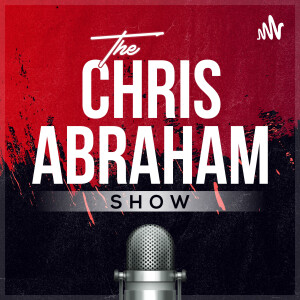
- Podcast Features
-
Monetization
-
Ads Marketplace
Join Ads Marketplace to earn through podcast sponsorships.
-
PodAds
Manage your ads with dynamic ad insertion capability.
-
Apple Podcasts Subscriptions Integration
Monetize with Apple Podcasts Subscriptions via Podbean.
-
Live Streaming
Earn rewards and recurring income from Fan Club membership.
-
Ads Marketplace
- Podbean App
-
Help and Support
-
Help Center
Get the answers and support you need.
-
Podbean Academy
Resources and guides to launch, grow, and monetize podcast.
-
Podbean Blog
Stay updated with the latest podcasting tips and trends.
-
What’s New
Check out our newest and recently released features!
-
Podcasting Smarter
Podcast interviews, best practices, and helpful tips.
-
Help Center
-
Popular Topics
-
How to Start a Podcast
The step-by-step guide to start your own podcast.
-
How to Start a Live Podcast
Create the best live podcast and engage your audience.
-
How to Monetize a Podcast
Tips on making the decision to monetize your podcast.
-
How to Promote Your Podcast
The best ways to get more eyes and ears on your podcast.
-
Podcast Advertising 101
Everything you need to know about podcast advertising.
-
Mobile Podcast Recording Guide
The ultimate guide to recording a podcast on your phone.
-
How to Use Group Recording
Steps to set up and use group recording in the Podbean app.
-
How to Start a Podcast
-
Podcasting
- Podcast Features
-
Monetization
-
Ads Marketplace
Join Ads Marketplace to earn through podcast sponsorships.
-
PodAds
Manage your ads with dynamic ad insertion capability.
-
Apple Podcasts Subscriptions Integration
Monetize with Apple Podcasts Subscriptions via Podbean.
-
Live Streaming
Earn rewards and recurring income from Fan Club membership.
-
Ads Marketplace
- Podbean App
- Advertisers
- Enterprise
- Pricing
-
Resources
-
Help and Support
-
Help Center
Get the answers and support you need.
-
Podbean Academy
Resources and guides to launch, grow, and monetize podcast.
-
Podbean Blog
Stay updated with the latest podcasting tips and trends.
-
What’s New
Check out our newest and recently released features!
-
Podcasting Smarter
Podcast interviews, best practices, and helpful tips.
-
Help Center
-
Popular Topics
-
How to Start a Podcast
The step-by-step guide to start your own podcast.
-
How to Start a Live Podcast
Create the best live podcast and engage your audience.
-
How to Monetize a Podcast
Tips on making the decision to monetize your podcast.
-
How to Promote Your Podcast
The best ways to get more eyes and ears on your podcast.
-
Podcast Advertising 101
Everything you need to know about podcast advertising.
-
Mobile Podcast Recording Guide
The ultimate guide to recording a podcast on your phone.
-
How to Use Group Recording
Steps to set up and use group recording in the Podbean app.
-
How to Start a Podcast
-
Help and Support
- Discover

S7E22 Understanding Harm Reduction: Bridging Compassion and Public Health
In this episode, Chris Abraham explores the complexities of harm reduction and societal reintegration, tackling sensitive topics such as abortion, PrEP, and support services for the unhoused. Reflecting on his experiences in Berlin and Washington, D.C., Chris discusses the intentional nature of participating in certain activities and the compassionate strategies behind harm reduction. He highlights the importance of creating welcoming environments to help individuals reintegrate into society without judgment or stigma, drawing parallels to Jesus’s teachings of inclusivity and redemption. Chris also addresses misconceptions about the prevalence and purpose of these services and their critical role in public health.
Q: What is harm reduction? A: Harm reduction refers to strategies and practices aimed at minimizing negative health, social, and legal impacts associated with drug use, sexual behavior, and other activities. It focuses on meeting people where they are and providing support to reduce risks.
Q: How does harm reduction differ from the eugenics movement? A: Harm reduction is voluntary and aims to improve health outcomes and support individuals, whereas the eugenics movement involved coercive and often violent measures to control populations.
Q: What are some common misconceptions about harm reduction? A: Common misconceptions include the beliefs that harm reduction encourages risky behavior, wastes taxpayer money, and that only a small problematic group uses these services. In reality, harm reduction saves money in the long run, improves public health, and is utilized by a broader segment of the population.
Q: Is the term "mahu" considered a slur? A: In Hawaiian culture, "mahu" is a respectful term used to acknowledge gender diversity and is not considered a slur. It reflects a deep cultural recognition of gender fluidity and acceptance.
- Harm Reduction: Practices aimed at reducing negative health impacts associated with certain behaviors, like drug use and sexual activity.
- PrEP: Pre-exposure prophylaxis, a medication taken to prevent HIV infection.
- Mahu: A Hawaiian term acknowledging gender diversity, often referring to individuals who embody both masculine and feminine qualities.
- Eugenics: A discredited movement aimed at improving the genetic quality of a human population through selective breeding and other coercive measures.
More Episodes
 2025-12-22
2025-12-22
 2025-11-07
2025-11-07
 2025-11-07
2025-11-07
 2025-11-06
2025-11-06
Create your
podcast in
minutes
- Full-featured podcast site
- Unlimited storage and bandwidth
- Comprehensive podcast stats
- Distribute to Apple Podcasts, Spotify, and more
- Make money with your podcast
It is Free
- Privacy Policy
- Cookie Policy
- Terms of Use
- Consent Preferences
- Copyright © 2015-2026 Podbean.com




